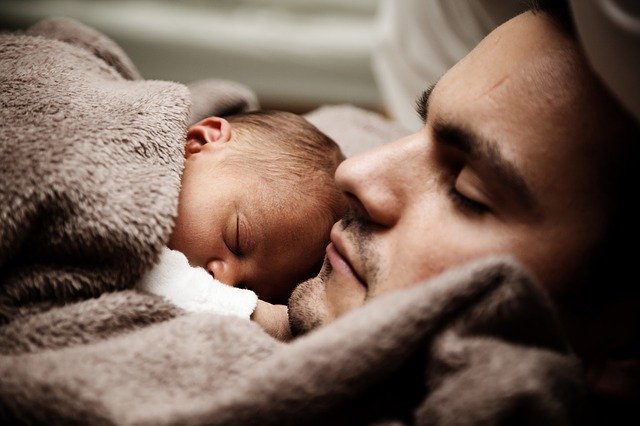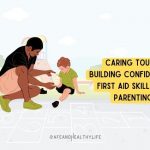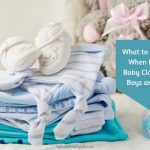
(Source: Pixabay)
Have you thought about living a greener lifestyle? And no, we don’t mean eating green smoothies and feeding your baby nothing but green veggie purees. We mean making more earth-friendly decisions that will help you parent better for your baby and help preserve the world your baby will grow up in.
So whether you’re looking to make a simple change or go full force, here are some ways you can gear up and green up as a parent.
1. Grow a garden.
Eating fresh fruits and vegetables is perhaps one of the most important things you can do to stay healthy. Not just your family’s health, a garden is good for the earth’s health, too. You help rid the earth of air pollution by growing organically, and you help reduce the use of fossil fuels and pollution that are the effects of transporting produce to stores.
Gardening will also help you save money on your monthly grocery spending. And as your child starts eating solids, you can easily make your own baby food and teach your baby to eat what your family already eats.
If you can’t grow your own food – and let’s be honest, none of us will ever grow all our own food—you can choose to buy organic and local.
2. Use cloth diapers and reusable wipes.
It’s not as gross or as hard as you may think, and it really is a safer choice, for the environment and your baby. It costs more environmentally to manufacture, distribute, and dispose of disposable diapers. And did you know that on average a child will go through about 7,000 disposable diapers by the time they’re potty trained? But a baby in cloth diapers only needs 20-40 while they’re in diapers.
Many disposable diapers are also made with chemicals that cause rashes, but cloth diapers are made with natural fibers that are safe to be up against your baby’s sensitive skin. What about all the laundry? You’ll only need to do 2-3 extra loads a week, and oftentimes cloth diaper companies recommend you air-dry the diapers, so you won’t need to use energy by running your dryer. And with modern thinking, brands like GroVia cloth diapers come in a variety of styles that fit and work similarly to disposables, so there’s not much of a learning curve to use them. They’ll also help you save some green because you’re buying less and you can reuse them with your next baby.
You can even take your natural parenting game up a notch and pair reusable wipes with your cloth diapers. You can make your own or buy them.
3. Get rid of toxic household cleaners.
Use Clorox wipes to clean your bathroom and Windex to clean your mirrors? You might want to rethink if those cleaners are actually making your home clean. Many common household cleaners are made with toxic ingredients, such as 1,4-Dioxane, formaldehyde, ammonia, and more. And all those cleaners you buy just because they leave your house smelling like a citrus oasis-they likely have an ingredient listed as “fragrance” in them, which can contain hundreds of different chemical compounds. You don’t need these ingredients to get a clean house, and most of these cleaners aren’t safe for children or anyone, as breathing them in or touching them can irritate your eyes, skin, and respiratory system.
Thankfully, non-toxic, natural cleaners are becoming more commonly available in stores. You can also make your own safer cleaners using vinegar, baking soda, water, and soap. Still, missing the scents? Try adding a few drops of essential oils into one of your homemade cleaners.
4. Buy eco-friendly baby toys.
You want your baby to play with safe, developmental toys. Luckily, many eco-friendly baby toys fall into that category, such as wooden blocks, wooden stacking rings, natural teethers, and organic cotton plush toys. Made of natural, sustainable materials, you can feel safe giving these toys to your baby.
5. Reuse and recycle where you can.
Yes, we mean reuse and recycle plastic bags, bottles, etc. But you can do more than that in terms of baby items. Especially if this is your first baby, you’re going to want everything from the baby gear to his clothes to be brand new—but it all doesn’t have to be. Kids grow out of things fast, so borrow baby things from family or friends who aren’t using them right now. You could also buy gently-used items and accept some hand-me-downs. And then if whatever you received or bought is still in good shape after your baby outgrows it, save it for the next child or give it to someone else.
6. Take your baby outside.
Go on walks. Take a blanket in your backyard so your baby can lie there and look around at all the beauty Mother Nature offers. As your child gets older, you can take her outside to play and take her on hikes where you can teach her about plants and wildlife. It’s never too early to start giving your baby positive associations with nature. A newborn baby carrier can help you take your baby outside where strollers can’t go. It’s those positive associations and memories that will give her an emotional connection to the world she lives in, which she will want to help take care of as she gets older. Plus, kids need to spend time in nature. It’s good for their cognitive functioning and moods.
About The Author:
My name is Wahab. My interest is sharing different ideas and tips. I like to share ideas and as a result, I would be delighted to hear from you.




